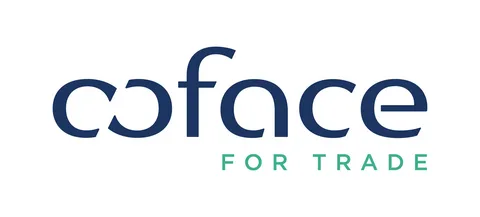The Handshake You Didn’t See Coming: Why a Quiet Nod from London Matters to a Factory Owner in Pune
Let’s be honest. Most headlines in the financial world are… dry. Drier than a forgotten papadum in the back of the cupboard. “Company X acquires Company Y.” “Regulator approves Z.” You see them, your eyes glaze over,
and you move on to check the cricket score. But every now and then, a piece of news lands that seems quiet on the surface but has some serious seismic potential rumbling underneath. This is one of those times.
https://www.youtube.com/@CofaceGroup
The headline in question: Lloyd’s Approves Coface’s New Trade Credit Insurance Syndicate. Okay, I hear you. It still sounds a bit like corporate bingo. But stick with me here. I’ve been kicking around the insurance and finance space for a while, and when these two names—Lloyd’s and Coface—get together, it’s not just a simple business deal. It’s a statement. A massive vote of confidence in the very fabric of global trade. And for businesses here in India, from the sprawling manufacturing giants in Chennai to the ambitious tech startups in Bengaluru, this is actually big news. Really big.
Think about the sheer amount of business in India that runs on trust. On credit. You ship goods to a buyer, and they promise to pay you in 30, 60, or even 90 days. It’s the grease that keeps the entire economic engine from seizing up. But that grease is getting thinner. In a world of shaky supply chains, surprise geopolitical events, and customers who can go from thriving to bankrupt in a quarter, that 90-day wait can feel like an eternity of anxiety. What if they don’t pay? That’s the multi-crore question, isn’t it?

So, What’s the Real Story Behind Coface and Lloyd’s?
Alright, let me break this down without the jargon. First, you have Coface. These guys are specialists, true masters of one specific, crucial craft: trade credit insurance India. They’ve been at it for decades. Their entire business is built on figuring out the risk of one company selling to another on credit and then insuring that risk. They’re the safety net that catches you if your customer defaults.
Then you have Lloyd’s of London. And here’s the part most people get wrong. Lloyd’s isn’t an insurance company. Not really. It’s more like an ancient, incredibly prestigious, and powerful marketplace. Imagine a bazaar, but instead of spices and silks, the stalls are selling insurance policies for the world’s most complex and massive risks—from satellites to shipping fleets. The individual sellers, or underwriters, in this market are called “syndicates.” Getting the green light to open a new shop, a new syndicate, in this marketplace is a massive deal. It means you’ve passed the ultimate test of financial strength and expertise. It’s like
a Michelin-starred chef getting invited to open a restaurant inside Buckingham Palace. You can learn more about how India’s insurance regulations work on the official IRDAI website.
So, when Lloyd’s Approves Coface’s New Trade Credit Insurance Syndicate, it means Coface can now leverage the immense capital, global network, and frankly, the legendary reputation of Lloyd’s to underwrite even more trade credit risk. They’ve just been handed a much, much bigger megaphone and a much, much deeper wallet.
Why This Is a Game-Changer for Indian Businesses
This is where it gets really interesting for us back home. India is aiming to be a $5 trillion economy. That doesn’t happen with cash-on-delivery transactions. It happens with bold, confident trade. It happens when a small textile exporter in Tiruppur feels secure enough to ship a massive order to a new buyer in Europe they’ve never met. This is where the real impact lies.
For too long, robust B2B credit risk management felt like a luxury reserved for the big multinational players. Smaller businesses, the MSMEs that form the very backbone of our economy, were often left to fend for themselves. They either had to demand cash upfront (losing them business) or sell on credit and pray. This Coface-Lloyd’s partnership changes the landscape. It injects a huge amount of new capacity into the market. More capacity means more competition, which can lead to better products, better pricing, and more accessibility for everyone. It could be the key to unlocking secure growth for countless Indian businesses. Suddenly, MSME credit insurance doesn’t seem like a distant dream, but an achievable tool for growth.
I remember talking to a friend who runs a small auto components unit. His biggest fear wasn’t production quality or labour issues; it was the one huge buyer who was always 45 days late on payments. The stress was immense. A tool like this gives him the power to transfer that risk. He can sleep at night, focus on innovation, and even use his insured invoices to get better financing terms from his bank. Want to know more about how insurance can unlock financial flexibility? This article on life insurance policy loans offers a fascinating parallel.
The Hidden Ripple Effect: Securing the Entire Supply Chain
But wait, there’s something even more profound here. It’s not just about individual invoices. This is about strengthening the entire ecosystem. Think about supply chain finance India. A supply chain is
only as strong as its weakest link. If one supplier goes down because a major customer defaulted, the shockwaves can cripple dozens of other businesses down the line. It’s a domino effect.
Trade credit insurance acts as a shock absorber for the entire system. When receivables are insured, they become high-quality assets. Banks are more willing to lend against them, injecting vital liquidity into the system. This allows businesses to expand, to be more ambitious in their export strategies, and to manage their working capital far more effectively. It even has implications for things like political risk insurance, as it shows a growing sophistication in how global markets are managing cross-border uncertainties. It’s a foundational piece that makes the entire structure of trade more resilient. It signals a move from a reactive, hope-based model of credit to a proactive, strategy-based one. For more insights on how businesses can protect themselves from major financial shocks, you can explore this piece on how insurance covered a massive robbery loss.
Ultimately, this isn’t just a London-based corporate maneuver. It’s a sign. A sign that the global financial powerhouses see the potential and the risk in modern trade and are building bigger, stronger boats to navigate it. For Indian businesses looking to compete on the world stage, this is more than just a headline. It’s the sound of a new, very important door creaking open.
A Few Lingering Questions You Might Have…
So, is trade credit insurance only for huge multinational corporations?
Absolutely not, and that’s the most exciting part. While large corporations have used it for years, the increasing capacity and competition in the market—spurred by news like this—is making it more accessible and affordable for SMEs and MSMEs. Think of it as a tool that levels the playing field, allowing smaller businesses to take on larger orders or export to new markets with the same confidence as the big players.
I’m still a bit fuzzy on what a ‘Lloyd’s syndicate’ actually is. Can you simplify?
Of course! Forget the corporate jargon. Think of Lloyd’s of London as a giant, exclusive shopping mall for insurance. The mall owner (Lloyd’s) is incredibly strict about who can open a store. A ‘syndicate’ is simply one of those approved stores. So, Coface opening a syndicate means they now have a premium storefront in the world’s most famous insurance mall, backed by the mall’s massive financial resources and reputation.
How does this Coface news directly affect my small business in India right now?
Directly, and overnight? Probably not. Think of it as a major infrastructure project. They’ve just gotten approval to build a new, bigger power plant. You won’t see your lights get brighter tomorrow, but the long-term effect is a more stable, powerful, and potentially cheaper energy grid for everyone. This move will inject more capacity and competition into the Indian insurance market over time, leading to better options for your business down the road.
Why is Lloyd’s approving Coface’s new trade credit insurance syndicate considered such a big deal in the industry?
It’s a big deal because of the names involved and what they represent. It’s a marriage of a top-tier specialist (Coface) with the world’s most reputable insurance marketplace (Lloyd’s). This creates a powerhouse combination of niche expertise and immense financial clout. For the industry, it’s a major signal of confidence and a significant expansion of capacity to cover B2B payment risks globally, which is a growing concern for everyone.





